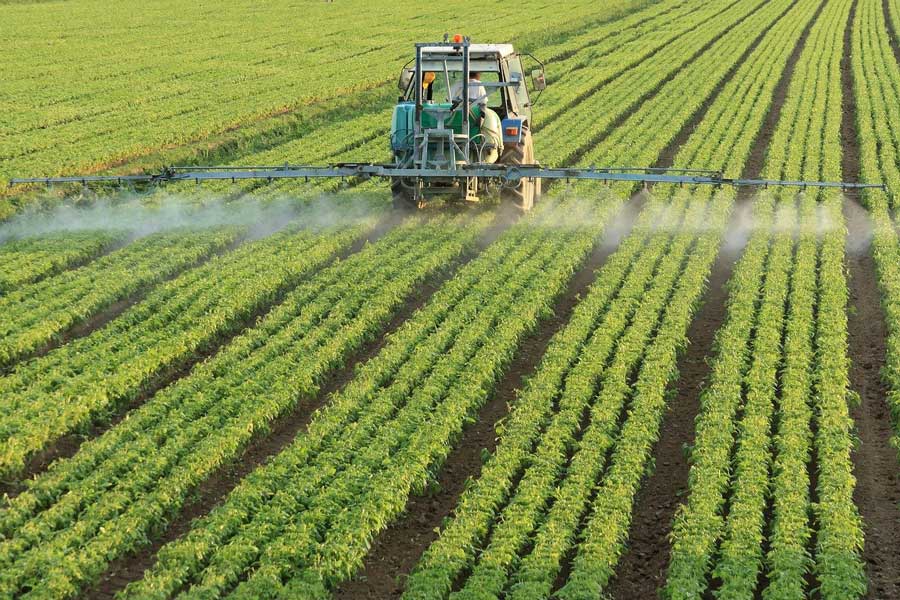Last week, we touched on the truth about the toxicity of ultra-processed foods and how they’re increasingly creeping into our diets. That got me thinking: What if the problem goes beyond additives and chemicals? What if even the fresh, whole foods we eat are failing us?
The reality is that the food on our plates today is not what it was decades ago—it’s weaker, less nutritious, and no longer providing the essential vitamins and minerals our bodies need. This isn’t an accident. Industrial farming, soil depletion, and mass food production have systematically stripped our food of its life-giving nutrients, leaving us undernourished despite eating what we think is a “healthy diet.” Meanwhile, Big Food and Big Pharma profit as nutritional deficiencies fuel a wave of chronic disease.
However, this isn’t new information. What’s more alarming are the solutions being proposed—namely, the push for synthetic, lab-grown alternatives being framed as the future of food.
The Great Nutrient Decline: Why Our Food Is Weaker Than Ever
Modern farming prioritises speed, size, and profit over nutritional value.
As a result:
- Soil depletion has led to crops with fewer vitamins and minerals. Studies show that the nutrient content of fruits and vegetables has dropped by up to 50% over the last 50 years.
- Selective breeding has prioritised shelf life over nutrient density, meaning today’s apples, tomatoes, and greens look great but deliver less nutrition.
- The overuse of chemical fertilisers and pesticides has disrupted the natural microbial life of soil, which is essential for nutrient absorption in plants.
- Mass farming practices have led to weaker, more vulnerable crops, which then require even more chemicals to grow—further compounding the cycle of destruction.
So, even if you eat a balanced diet full of fruits and vegetables, you’re still likely missing out on key nutrients.
The Synthetic Food Takeover: Who Really Benefits?
Instead of fixing the soil and returning to regenerative farming, the powers that be are pushing a synthetic food revolution.
- Lab-grown meat, genetically modified crops, and artificial vitamins are being framed as the future of “sustainable nutrition.”
- Ultra-processed “plant-based” foods, often loaded with seed oils and synthetic additives, are being promoted as healthy alternatives.
- Fortified foods are replacing naturally nutrient-rich options, tricking consumers into thinking they are getting what they need.
But who really benefits? Not you. A population dependent on synthetic, lab-created nutrition is a population dependent on corporations and pharmaceuticals.
How to Take Back Control: Reclaiming Real Nutrition
Here are some tips for eating well on any budget:
- Buy Local and Seasonal: Local, seasonal produce is often fresher and more nutrient-dense. Even if it’s not organic, locally grown fruits and vegetables typically retain more vitamins and minerals. Look for farmers’ markets or community-supported agriculture (CSA) programs for affordable, high-quality options.
- Prioritise Whole Foods: Focus on whole, unprocessed foods like gluten-free grains (e.g., brown rice, quinoa, oats, buckwheat), beans, lentils, seeds, and root vegetables. These tend to be more affordable and offer excellent nutrition, even when bought conventionally.
- The Clean 15 and Dirty Dozen: Use the “Dirty Dozen” list—fruits and vegetables with the highest pesticide residues—as a guide for which items to prioritise buying organic. For the rest, consider buying conventionally grown produce, especially those on the “Clean 15” list.
- Frozen and Canned Options: Frozen or canned fruits and vegetables can be just as nutritious as fresh and often more affordable. Check labels to avoid options with added sugars, salt, or preservatives.
- Grow Your Own: Even with limited space, growing your own herbs, vegetables, or fruits (such as tomatoes, leafy greens, or herbs) can be an easy way to enjoy fresh, nutrient-rich food.
- Targeted Supplementation – With soil degradation and modern stressors, supplementation is often essential. Look for high-quality vitamins and minerals like magnesium, iodine, and selenium to help bridge nutritional gaps.
The Final Truth: We Don’t Have to Accept Nutritional Starvation
Spring is a time of renewal, and now is the perfect moment to rethink how we nourish our
bodies.
The modern food system is built for profit, not health, but we don’t have to accept this reality. By making conscious, informed choices, we can support our health with natural nutrition.




